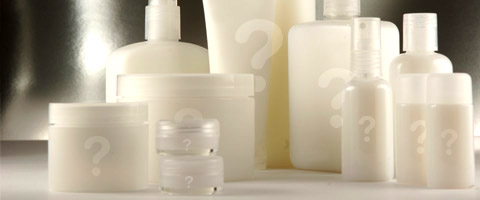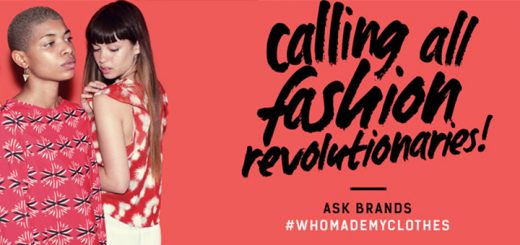Supermarket own label fair trade V Fairtrade pioneers

Like all couples, we have our differences. We argue about the kids, money, whose turn it is to load the dishwasher, all the usual stuff. But sometimes the argument focuses on something a little less ordinary and today, we invite you to eavesdrop on our issue of the moment and join our great debate.
Is it better to buy supermarket own label fair trade goods or to support fairtrade pioneer brands like Cafedirect and Divine.
My argument for supermarket own label fair trade goods:-
Since my husband rarely visits a supermarket (daggers drawn early on!) and I frequent the same supermarket at the same time on the same day every week, I feel I am in more of a position to comment on what actually appears on and disappears off the supermarket shelves from a consumer perspective.
In our early days as fair trade supporters, we could never have envisaged being able to buy fair trade products in a local supermarket, let alone the advent of own label fair trade goods. I therefore feel the need to support any steps in the right direction taken by the supermarket chains. I take pride in buying own label fairly traded coffee, chocolate spread, honey, fresh fruit and veg, and the latest new addition to their range, banana cake and chocolate cake.
As I have discovered with the own label organic products, these items are launched with a great deal of hype but removed very quietly and without comment. If the consumers do not buy them, then the lines will be withdrawn. Simple as that. Surely the ethical consumer needs to buy these products to ensure their place on the shelves.
Once on the shelves, I believe that having a fair trade option on display will encourage those who may never have tried a fair trade product before to purchase the own label fair trade product. Through the sheer convenience of being able to buy the item during a normal weekly shop and the added bonus of a more equivalent price to their normal choice, fair trade products can become a viable alternative for the consumer masses.
His argument for supporting the pioneer fairtrade brands:-
Having let Helen have her say – she always like to have the first word – here are my thoughts. Supermarket own-label fairtrade products are great – well as far as they go. They appear to be built on the shallowest understandings of what fairtrade is actually about. Look at the weasily words on Tesco packaging explaining that the picture of a happy African on their boxes is not necessarily a fairtrade producer – it’s almost as though they don’t know who they are buying from. They have reduced the fairtrade process to a financial transaction rather than a living relationship. Fairtrade has become synonymous with fair price and says little about the wider partnership between retailer and producer that was originally envisaged..
Take Divine Chocolate for example. It is almost 50% owned by the producers. The producers not only benefit from fairtrade terms of sale but also from their share of the profits that Divine makes. The producers from Kuapa Kokoo have an input to the business process and the decisions made about how the brand will grow and develop in the UK. Divine pays advances to the Ghanaian co-operative so that they can invest in their future crops. Divine makes a long term commitment to the growers – they know Divine will buy their crops for years to come.
So the Divine scorecard scores three out of three – pays a fair price, has a long term relationship and pays advances to the support producer growth. The supermarket own-label scorecard just scores one for fair price – the other two are very rarely present in the supermarket to producer relationship.
This is fairtrade at a minimal level – doing just enough to meet the criteria. The pioneer brands like Traidcraft, Cafedirect, Equal Exchange, Tropical Wholefoods and Divine Chocolate operate a “Gold Standard” of fairtrade. They go the extra mile. They make the relationships work through the tough times. Where there is a problem they work together with the producers to fix it.
So what should you do? Buy pioneer brands first if they are available. Sure support supermarket brands in categories like fresh fruit where they don’t let the pioneer brands in, but in tea, coffee, chocolate and the rest of the grocery categories buy from the pioneers. In fact when you don’t, you give the supermarkets the “vote” they need to delist a Cafedirect or a Traidcraft and just keep the own label product. More power to the supermarket and less producers being nurtured into sustainable relationships.
The debate goes on. As with all ongoing discussions/rows, we are trying to reach a compromise. At the moment, this looks like a monthly order of fairly traded store cupboard items from the Ethicalsuperstore.com, supplemented by my weekly shop at the supermarket. This has the double bonus of being able to buy fair trade alternatives not available in the supermarket, such as pasta and jam, as well as making my supermarket trip less demanding of my time, effort and bank balance. Everyone wins in the battle, even if the war continues. Let us know what you think. We are both interested in which of you think is right!



I don’t think there’s a right answer. The early movers like CafeDirect and Divine have to keep on moving, like Green & Blacks or Ben & Jerry have done. Its an evolutionary process. Some are born to lead, others to follow. Is someone expecting some thanks here for doing what’s right ? The priority is to maximise fairness to the growers (and the ecosystem), isn’t it ? So does the Cadbury deal do that ? We should ask the growers I guess.. PS What do you think of Sainsbury 80 Fairtrade teabags for 39p ? Is that undermining FT ?
I agree with ‘husband’ – own label simply means that the raw material qualifies as being grown to Fairtrade minimum standards and bought at Fairtrade minimum price. Tesco, Sainsbury’s etc will have absolutely no idea who grew the product. The aren’t building a partnership they are simply buying a Fairtrade raw material in large quantities to make it cheap. They will then add something on to the price to make it a profitable product – but it’s very doubtful this profit will benefit the grower at all. A consumer buying an own label Fairtrade product is really only half-heartedly supporting Fairtrade.
Sometimes a raw material can be done in large quantities that is why it is profitable for trading any goods and it is good profitable for growth as consumer buying.